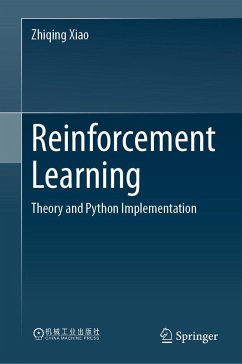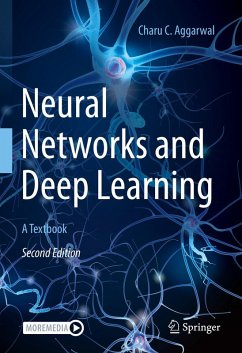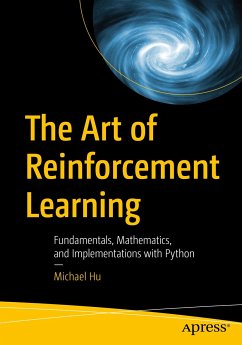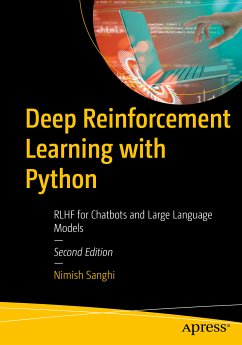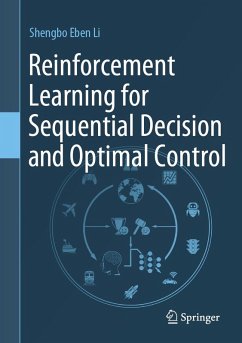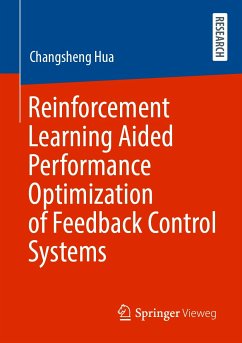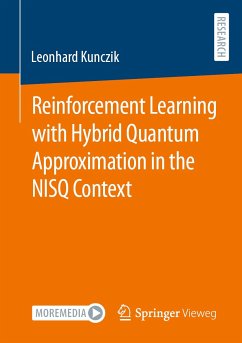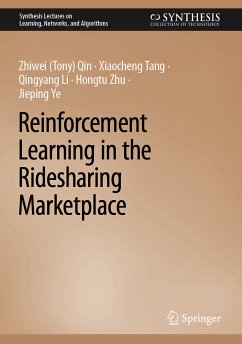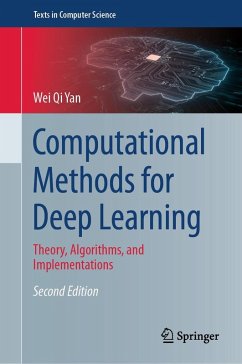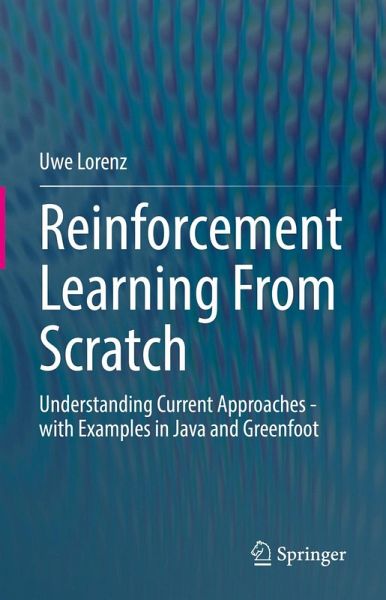
Reinforcement Learning From Scratch (eBook, PDF)
Understanding Current Approaches - with Examples in Java and Greenfoot
Versandkostenfrei!
Sofort per Download lieferbar
Statt: 85,59 €**
48,95 €
inkl. MwSt.
**Preis der gedruckten Ausgabe (Gebundenes Buch)
Alle Infos zum eBook verschenkenWeitere Ausgaben:

PAYBACK Punkte
24 °P sammeln!
In ancient games such as chess or go, the most brilliant players can improve by studying the strategies produced by a machine. Robotic systems practice their own movements. In arcade games, agents capable of learning reach superhuman levels within a few hours. How do these spectacular reinforcement learning algorithms work?With easy-to-understand explanations and clear examples in Java and Greenfoot, you can acquire the principles of reinforcement learning and apply them in your own intelligent agents. Greenfoot (M.Kölling, King's College London) and the hamster model (D. Bohles, University o...
In ancient games such as chess or go, the most brilliant players can improve by studying the strategies produced by a machine. Robotic systems practice their own movements. In arcade games, agents capable of learning reach superhuman levels within a few hours. How do these spectacular reinforcement learning algorithms work?
With easy-to-understand explanations and clear examples in Java and Greenfoot, you can acquire the principles of reinforcement learning and apply them in your own intelligent agents. Greenfoot (M.Kölling, King's College London) and the hamster model (D. Bohles, University of Oldenburg) are simple but also powerful didactic tools that were developed to convey basic programming concepts.
The result is an accessible introduction into machine learning that concentrates on reinforcement learning. Taking the reader through the steps of developing intelligent agents, from the very basics to advanced aspects, touching on a variety of machine learning algorithms along the way, one is allowed to play along, experiment, and add their own ideas and experiments.
With easy-to-understand explanations and clear examples in Java and Greenfoot, you can acquire the principles of reinforcement learning and apply them in your own intelligent agents. Greenfoot (M.Kölling, King's College London) and the hamster model (D. Bohles, University of Oldenburg) are simple but also powerful didactic tools that were developed to convey basic programming concepts.
The result is an accessible introduction into machine learning that concentrates on reinforcement learning. Taking the reader through the steps of developing intelligent agents, from the very basics to advanced aspects, touching on a variety of machine learning algorithms along the way, one is allowed to play along, experiment, and add their own ideas and experiments.
Dieser Download kann aus rechtlichen Gründen nur mit Rechnungsadresse in A, B, BG, CY, CZ, D, DK, EW, E, FIN, F, GR, HR, H, IRL, I, LT, L, LR, M, NL, PL, P, R, S, SLO, SK ausgeliefert werden.



